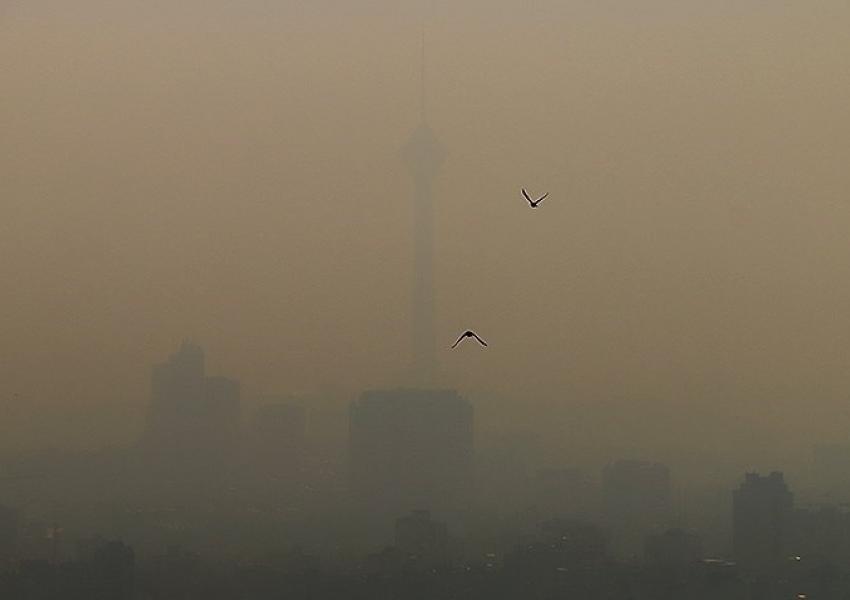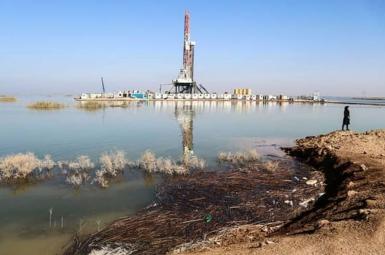
Officials Say They Can Do Nothing As Iran Plunges Into Smug, Blackout
Tehran and several other Iranian cities as well as hundreds of small towns and villages plunged into darkness on Staurday and Sunday while the people struggle to breath under a heavy blanket of smug for several days now.
Saturday night, social media accounts reported that blackouts spread even to the part of downtown Tehran where Supreme Leader Ali Khamenei's house and office are located, although Khamenei is known to live in the suburbs most of the time to stay away from the pollution.
Both experts and the man in the street attribute the pollution to the improvised alternative fuel used in most Iranian factories and power plants in the absence of natural gas that becomes scarce in the winter.
Oil Minister Bijan Namdar Zanganeh told reporters in Tehran on Sunday, January 3 that officials are against using the poorly refined fuel mazut heavy fuel at power plans, but the current situation of shortages leaves them with no solution other than burning sulphur-heavy mazut which creates dangerous fumes.
This comes while the power authority in Tehran had told the press earlier on the same day that mazut is not being used in Tehran's power plants. Mazut is mainly used in former Soviet countries and by some ships, but if refined further it can turn into diesel fuel.
Meanwhile, Vice-President Isa Kalantari, one of the officials who has expressed his opposition to using the environmentally dangerous fuel told Tasnim News agency that using mazut is prohibited in the power plants located west of Tehran, while those in the east of the capital are free to use them.
Nonetheless, he said that the Iranian Environmental Agency under his management cannot do anything about the problem because stopping the use of Mazot means shutting down several power plants.
In the meantime, Health Ministry officials have been complaining that the smug provides an environment supportive of the COVID-19 virus which can be carried more easily via air particles in pollution.
Both Zanganeh and Kalantari offered their own solutions for the problem. Zanganeh suggested that the people should shut their windows and lower the temperature at their homes in order to save fuel.
Kalantari, on the other hand, suggested that the people should put on more clothes and even go to bed with some of their clothes on. Iranians who are prepared to joke about their misery, have particularly welcomed Kalantari's statement.
Many Iranians and the press have been complaining about the hazardous situation of driving even in cities such as Tehran while others said that thieves and thugs are taking advantage of the darkness.
However, reports since Thursday indicate that pollution in Tehran has risen to an extremely dangerous level by any standard.
According to Etemad Online, Mohammad Darvish, an expert on the environment blamed the Iranian Environmental Agency for the pollution and called on Kalantari to resign. He said it is not enough to say occasionally that he has warned the ministry of oil or energy. He should take serious measures to hold the authorities to account.
If anyone in Iran can force individuals and organizations to be accountable for their behavior and performance, that would be the chief of the Judiciary. However, Judiciary Chief Ebrahim Raeesi said on Sunday that power plants may continue to use mazut.
Many Iranians during the past week likened the widespread pollution and blackout in Iran to Chernobyl. Regardless of the gravity of the situation, the capital of the Islamic Republic is still far from Chernobyl, but the inaction and incompetence among officials is certainly on a par with the Union of Soviet Socialist Republics.








